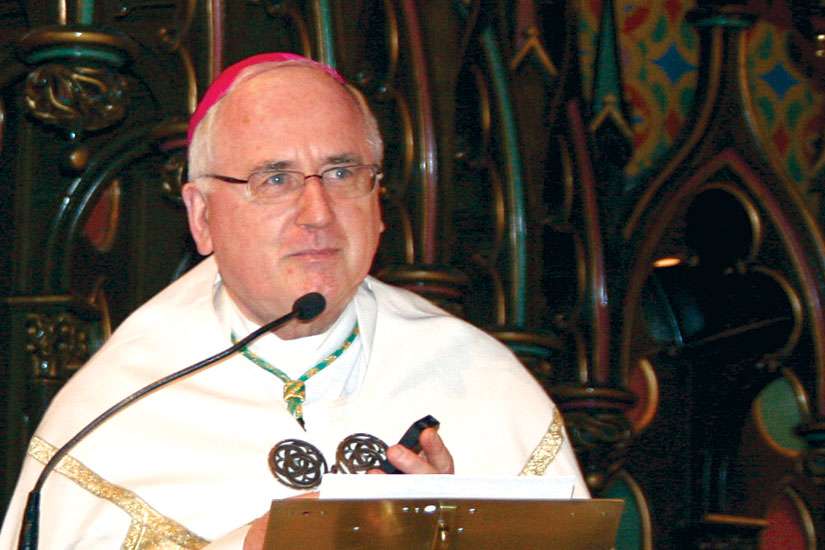In his May 1 letter, Archbishop Terrence Prendergast said the Supreme Court ruling that struck down a Criminal Code ban on assisted suicide “changed medical ethics forever.”
Prendergast said the ruling should “concern all Canadians because it gave physicians the right, in law, to be the hands that cause the death of a patient at the most vulnerable time of their life.’
“This decision also re-interpreted the ‘right to life’ in Canada’s constitution as providing a ‘right to die,’ ” he wrote, adding that the Court’s subjective language opens the door to euthanasia “with few if any controls.”
Justice Minister Peter MacKay told Canadian Press April 27 the government will establish an independent commission to conduct wide-ranging consultations, with the process to be announced soon. He said no legislation will be tabled before the election next October, but he expected the government would have legislation in place to meet the one-year deadline set by the Supreme Court on Feb. 6 when it struck down Canada’s laws against assisted suicide.
While euthanasia may be off the table as an election issue for the Tories, it remains a concern for many Catholic and pro-life voters.
The Association for Reformed Political Action (ARPA) released a report saying the Court crossed “a sacred line” when it concluded the sanctity of life “is no longer an absolute value — it can be usurped by choice.”
ARPA warned of “significant consequences when the right to life and human dignity “are no longer inviolable.” It argued “humans have a right to life simply from being or existing as a human — an objectively measurable standard.”
“When the right to life is changed to something subjective where the right comes from possessing specific abilities or enjoying certain qualities of life that others think are necessary, the right to life becomes violable,” ARPA said.
ARPA warned that due to this change “it becomes impossible to draw a fixed line between those who can be killed and those who cannot.”
It joined the Euthanasia Prevention Coalition (EPC) and other groups and individuals in asking MacKay to invoke the notwithstanding clause to give the government more time to study the legislation and craft a bill that does the least harm.
The EPC also wants MacKay to call a Royal Commission “to protect people with disabilities, elders who live with abuse, depressed and suicidal people and others,” according to EPC executive director Alex Schadenberg. Invoking the notwithstanding clause would suspend the Court’s decision for up to five years.
McGill University ethicist Margaret Somerville has also called for a Royal Commission, because allowing physician-assisted death is not the small incremental change that proponents contend. She said the change represents a “seismic shift.”
Cardus released a study in late April called “Death is natural: reframing the end-of-life conversation in Canada,” along with a Nanos opinion survey that showed 73 per cent of Canadians “are concerned or somewhat concerned they would not get the comfort and support they would hope to receive if they or a loved one faced a life-threatening experience or was nearing death.”
“We need to build a social system that supports the desires of Canadians for a natural death, which we understand to mean dying of natural causes in our natural environment surrounded by our natural caregivers,” Cardus vice president Ray Pennings wrote.
Pennings said 75 per cent of Canadians say they would prefer to die at home, but in fact 70 per cent die in hospital settings due to an increased “medicalization of death.” The Cardus study urged a greater focus on providing palliative care and hospice care.
In his letter, Prendergast tackled some of the confusion surrounding end-of-life care and pain management. He said “the Church teaches that patients in the final phase of terminal illness may request and be given whatever pain relief is required, even if, indirectly, it could shorten their life.”
The archbishop also allayed fears of being forced to undergo unwanted medical treatment at end of life.
“Refusal to begin or to continue to use a medical procedure where the burdens, harms and risks of harm are out of proportion to any anticipated benefit is not equivalent to suicide,” he said.


